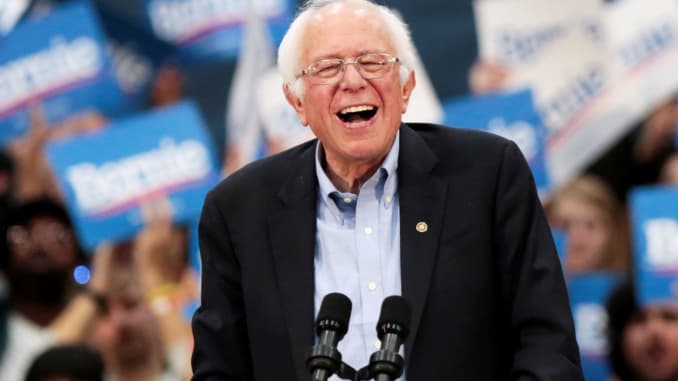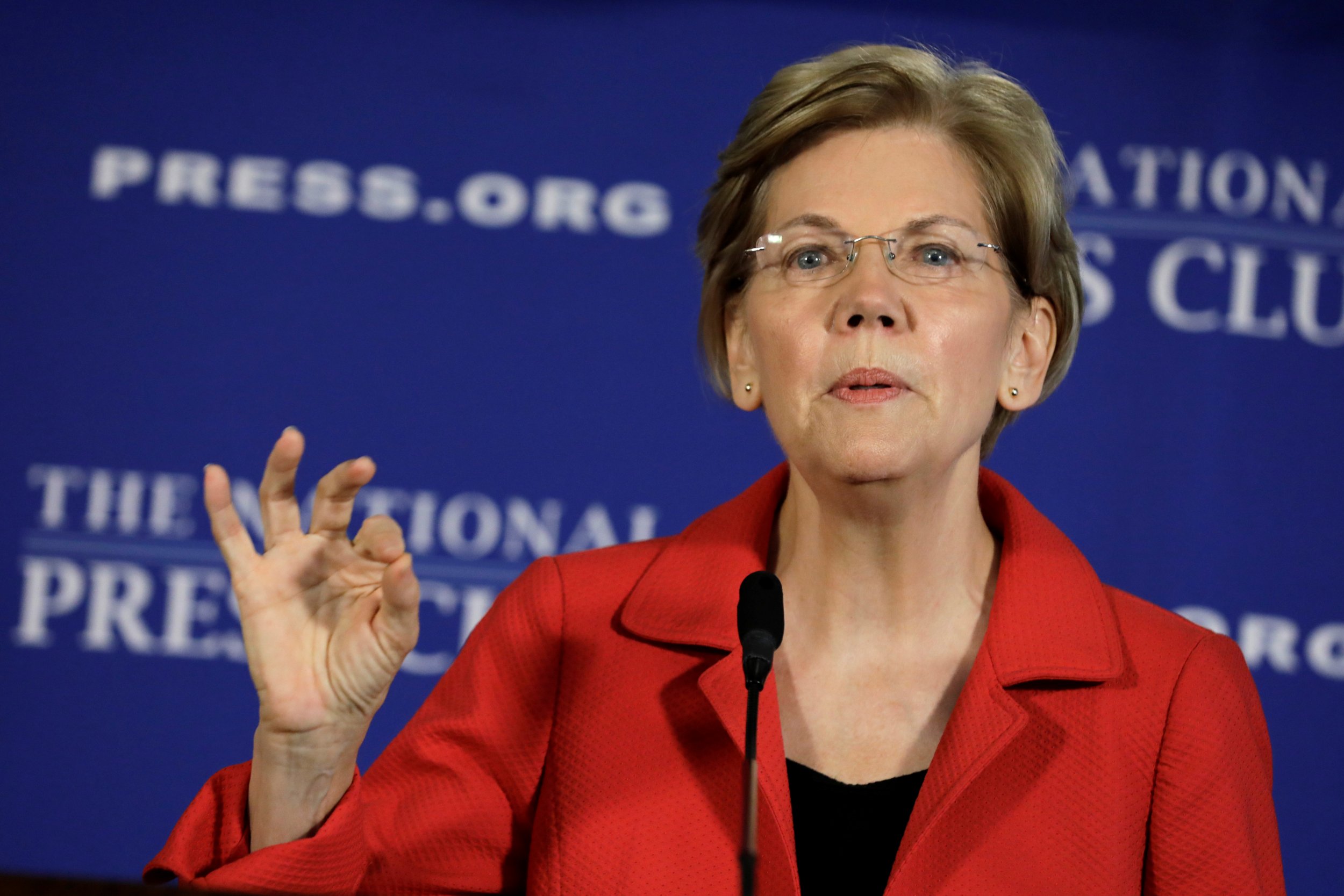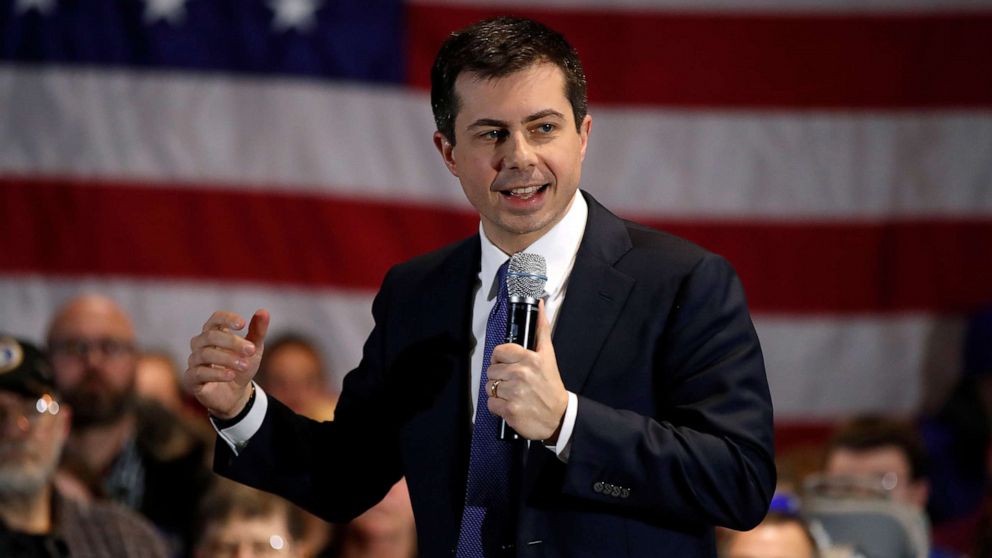The topic of healthcare has been a main point of contention in the 2020 Democratic presidential race with each candidate proposing their own solutions. Should there be universal healthcare for all? Should there be a choice between public and private healthcare, similar to Obamacare? In this post, I will outline what each democratic candidate has suggested. I will focus on the Democratic candidates because the primaries are fast approaching, and the Republican party has no put forth any viable candidates to challenge Trump. Furthermore, I will only look at the Democratic candidates that are polling well and will likely be on the ballot.
Joe Biden
Source: Business Insider
Former Vice President Biden worked closely with President Obama in the creation of the controversial Affordable Care Act. Under the current Trump administration and Republican-controlled Senate, there have been multiple efforts to strip it. Biden plans to keep the Affordable Care Act if he is to be president, and will build upon it according to his campaign website. His expansions are centered around the goal of covering “97% of Americans.” To do so, Biden has proposed to have a public option of healthcare, similar to Medicare, “increasing the value of tax credits to lower premiums and extend coverage to more working Americans,” and expanding coverage to low-income Americans by ensuring states implement the Affordable Care Act. Biden would also like to lower the cost of private insurance by working out acceptable prices with the companies. I would like to note that there is not a very detailed description of how this would be conducted.
Bernie Sanders

Source: CNBC
Sanders has been a firm advocate for Medicare for All being implemented in the United States. Sanders’ main goal is to create “a single-payer, national health insurance program… with no cost at the time of service” that will be expanded to cover dental, hearing, etc. Bernie has also proposed a plan to eliminate the high costs that pharmaceutical companies often place on drugs, with the goal of having no American pay over “$200 a year” for prescription drugs. One of his policies to do so is the Prescription Drug Price Relief Act which determines a drug price based upon the median drug price in Canada, the United Kingdom, France, Germany, and Japan. Sanders continuously emphasizes that Medicare for All is in effect in many Western nations, and in this, the United States is behind.
Elizabeth Warren

Source: Newsweek
Similar to Bernie Sanders, Warren supports Medicare for All, providing every American with public healthcare that does not have high costs from premiums, as current private insurance companies do. Warren has also proposed a piece of legislation, that is rather unique, to reduce the price of prescription drugs. The Affordable Drug Manufacturing Act would allow the Department of Health and Human Services to “manufacture generic drugs in cases in which no company is manufacturing a drug, when only one or two companies manufacture a drug and its price has spiked, when the drug is in shortage, or when a medicine listed as essential by the World Health Organization faces limited competition and high prices.” Similarly to Bernie and Biden, she believes that negotiations must also be made between drug companies and the government to lower prices.
Amy Klobuchar

Source: The New York Times
Klobuchar’s proposed policy on the topic of healthcare is incredibly similar to that of former Vice President Biden. She supports universal health care for all through the use of a public option of healthcare, such as Medicare. Klobuchar would keep the Affordable Care Act in action, however, she emphasizes that she would make changes to it. One of those changes that she would like to make it easier “for states to put reinsurance in place.” Reinsurance is when an insurer “transfers portions of their risk portfolios to other parties by some form of agreement to reduce the likelihood of paying a large obligation resulting from an insurance claim.” Klobuchar also would focus on negotiations with drug companies to lower the cost of prescription drugs.
Pete Buttigieg

Source: ABC News
Buttigieg has coined a popular catchphrase for his stance on healthcare: “Medicare for all who want it.” This is in direct conflict with Sanders and Warren’s proposed policies. Buttigieg believes that offering a public option with lower prices will “incentivize private insurers to compete on price and bring down costs” for all. Buttigieg is the only candidate who outlined the costs of his plan on the main page for his campaign. He plans to pay for the legislation (a cost of $1.5 trillion) over the course of ten years. “It will be paid for by rolling back the Trump corporate tax cuts, which will generate $1.4 trillion in revenue and the rest from cost savings that result from empowering the federal government to negotiate drug prices with pharmaceutical companies.”
The Democratic candidates are in opposition mainly over whether there should be public healthcare for everyone, or whether private insurance should remain an option to those who want it. I believe that it is past time the United States embrace Medicare for All and therefore believe that Warren and Bernie propose the best solutions. In a country as powerful as this one, the government should be able to protect its citizens from going into debt due to a medical cost.
Your blog post was nothing short of great. I love the way that you articulated your points and used pictures of the people you were referring to in an effort to help readers know who you are talking about.. Clearly you have a passion for politics and you know what you are talking about.
However, as with everything else in the world, especially literature, there are always things that one can improve on. Everything can be advanced in some way, shape, or form. For your blog post most specifically, I believe that the best way to advance it would be to fix the way that you bring the reader into the article.
In the beginning of your post you do allow the reader to have an understanding of what the rest of the article is going to be about. However, as one progresses through the article it becomes a tough read. The reading is not tough because of your verbiage or anything of that sort, but more along the line of the fact that the reader is quickly bombarded with information. I believe that a way to improve your dilemma with having a lot of information all at once would be to make your posts more vibrant and colorful. Obviously I do not mean that you should have bright reds, yellows, and greens, but they same way that those colors brighten up a page- you should use images and language that fill those same shoes. Just make your work more inviting and less frightening.
Eyan,
Work on addressing the topic. Remember that your job is to engage with the ideas and also provide an outside source as support for your own point of view.
Great information Lui! I really liked how condensed this is since this is such an important topic for the democratic primaries coming soon. It is interesting to see how varied their responses to America’s healthcare crisis are, since the Democratic party basis its ideology surrounding healthcare on the moral grounds that disease doesn’t discriminate. Nobody (with few exceptions) chooses to become ill, and thus it is morally incomprehensible for humanity to allow those less fortunate to suffer because of their socioeconomic status. It is quite sad to see Americans paying thousands for life-saving medications with no other choice. Part of the reason for this is clearly the greed within the pharmaceutical industry. Examples include the insane prices for insulin and the $1900/month HIV prevention medication Truvada which is produced at just $6 per month.
Some may argue that allowing companies to profit more spurs innovation and better drugs, but the latter example I gave was produced and studied in a taxpayer-funded public research study. This drug is incredibly necessary for the prevention of HIV across the board, and efforts to promote the drug to end HIV for good are on the rise. But it is my opinion that unless the consumer price for this drug lowers drastically, HIV will never be stopped. Shouldn’t pharma companies be able to profits aside to work toward this goal?
It is for reasons like this that make me hesitant to accept that incrementalism is the best approach to this problem. In fact, the benefits of a national insurance would benefit everyone. In terms of implementation, I appreciate how straightforward and to the point Buttigieg is with his plan and how it will be paid for. I do not think that allowing insurance companies to coexist with a national insurance would be the best approach toward providing the best healthcare to those in the US, but it seems like the most logical step in this direction. We have to remember that change can’t happen overnight like this.
https://www.washingtonpost.com/blogs/post-partisan/wp/2017/09/15/the-loss-of-morality-in-americas-health-care-debate/
https://www.npr.org/sections/health-shots/2018/06/30/624045995/rising-cost-of-prep-a-pill-that-prevents-hiv-pushes-it-out-of-reach-for-many
Hi Alex, I completely agree that a national healthcare system is needed at this point. I agree that there needs to be a process to implementing it over a period of time, however, I feel that the steps Buttigieg wants to take would not lead to a national healthcare. I believe that his plan is to have both coexist, and I think that it is naive on Buttigieg’s part to believe that private insurance companies would willing lower the costs just because a national option exists.
Luisina, thank you for choosing a topic pertinent to the current political climate and presenting it in a clear, concise manner. Indeed, healthcare represents a critical policy point in the upcoming election, with deep polarizations existing within the democratic field alone. I admire how you presented each top tier candidate and the core proposals of their healthcare plans, as well as cited their campaign websites. Upon checking up on each candidate’s website, you give a well-rounded, yet succinct overview on their stances within healthcare, policy they intend to enact, and how they intend to roll out these policies.
Beginning with Joe Biden, the apparent front runner of the field, his policies carve out a middle ground between the currently instated Affordable Care Act and the more extreme socialized medicine proposals. And while Biden’s plan appears more widely agreeable to a moderate’s perspective, you raise a compelling point in your mentioning the lack of a detailed description of the policy and his execution plan on his website (https://joebiden.com/healthcare/).
Moving to Bernie Sanders, the inner-party divisions within the area of healthcare are truly exposed. Unlike Joe Biden, Bernie actually presents tangible policy through his Prescription Drug Price Relief Act. However, as is the case with other candidates, few details emerge regarding the contents and strategies required to negotiate lower drug prices on citizens’ behalf. While Bernie claims that the United States lags behind other western nations due to its reluctance to enact universal healthcare, he strategically excludes the contingency of higher taxes necessary to uphold such programs.
Most notably, Elizabeth Warren holds policy positions which correspond with those of Sanders, especially in her desire of cutting private insurance out of the equation. On the other hand, in the case of Pete Buttigieg, his plan uniquely outlines the budgetary sourcing of his progressive health care agenda. Significantly, Pete takes on what appears to be a fiscally responsible approach by citing the repeal of the Trump corporate tax cuts as a revenue source to support his plan.
Ultimately, while I personally maintain an opposing perspective on the issue of health care, I admire how you remove your own bias in favor of presenting each candidate’s policy points as they stand.
I find it very interesting how some candidates are not explicit in the way their policy will be implemented, specifically with Biden and Bernie like you said. I wish it would be easy for Americans to realize that right now they are paying crazy amounts of money for healthcare, and I would hope they would be open to transitioning away from that. We have to realize that raising taxes for the purpose of healthcare also means that we would not be paying for healthcare separately. Some would say that we need choice and competition, but a government healthcare needs not to compete and create profit, and instead the focus is on efficiency and universality. One thing is for certain: we need change in the US healthcare industry.